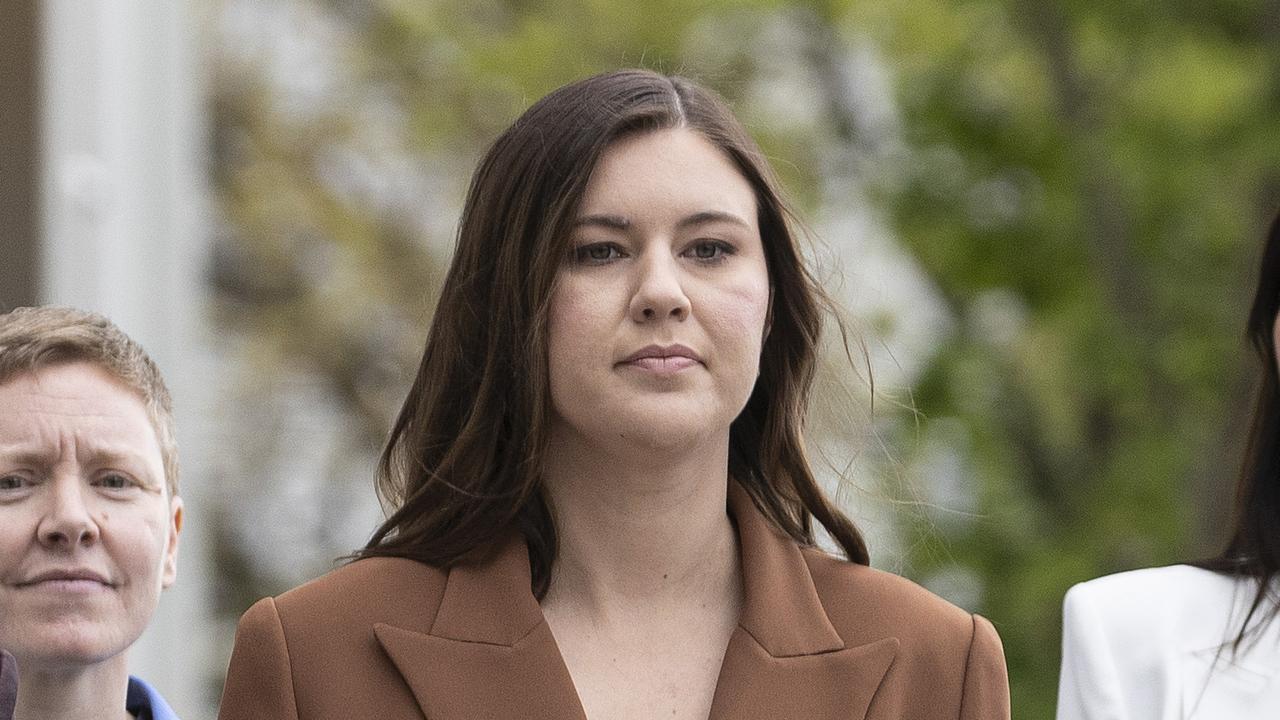Higgins saga’s unsatisfactory end | The Australian
The rule of law, including the presumption of innocence and the right to a fair trial, is one of Australia’s fundamental values, along with democracy and free speech. It sets our nation apart from totalitarian regimes in which brutal, opaque courts driven by political power and prevailing ideology break lives without accountability. Australia urgently needs to take stock, however, in light of the shambles surrounding former Liberal staffer Brittany Higgins and the man she accused of raping her in Parliament House in March 2019, Bruce Lehrmann.
The legal and media-driven fallout from the allegations has been a disaster for both young people, who are still in their late 20s. Alarmingly, it also has been deeply dangerous for the rule of law. What has unfolded needs to be understood and avoided in future. Rather than the law taking its course in a sober, orderly way, the case was overtaken by a frenzy of progressive #MeToo ideology. The result has been a bad outcome all around. And it could be about to cost taxpayers up to $3m, with Ms Higgins seeking compensation, reportedly for past and future economic loss. The claim, set for mediation on Tuesday, is likely to be settled by the Department of Finance and may never reach a courtroom. As Janet Albrechtsen writes in Inquirer on Saturday: “Taxpayers are entitled to assurances from the public servants involved that the department is looking after taxpayers’ interests on at least two fronts. One goes to the processes that will be used to test claims before payments with public money are made. If claims are not tested, taxpayers are entitled to wonder whether integrity standards within the department are open to question. The second issue goes to politics. The Department of Finance will know that Finance Minister Katy Gallagher was central in pursuing the Brittany Higgins saga against the former Morrison government when she was in opposition. What has the department done to deal with political conflicts, both real and perceived, before it begins mediation on December 13?”
Whether the alleged rape should have been tried in court has emerged as a matter of conjecture. As Albrechtsen and Stephen Rice reported a week ago, the most senior police officer on the case believed there was insufficient evidence to prosecute Mr Lehrmann but could not stop ACT Director of Public Prosecutions Shane Drumgold SC from proceeding. That was because “there is too much political interference”, according to diary notes by the ACT Police Manager of Criminal Investigations, Detective Superintendent Scott Moller. In a separate executive briefing last year, Superintendent Moller also advised that investigators “have serious concerns in relation to the strength and reliability of (Ms Higgins’) evidence but also more importantly her mental health and how any future prosecution may affect her wellbeing”. That concern was prescient.
Ms Higgins was absent from court in the middle of her cross-examination, reportedly because she had been admitted to a mental health facility for five days. And on Friday last week, Mr Drumgold announced he would not run the case again because of the “ongoing trauma” it would cause her. The first trial was aborted due to a juror’s misconduct. Withdrawing the charges against Mr Lehrmann, Mr Drumgold made the extraordinary statement that he had believed there were “reasonable prospects” for a conviction against the defendant. So much for the presumption of innocence.
It remains to be seen what, if anything, Mr Lehrmann does in response. He is reportedly planning to sue media outlets for defamation. As reported on Saturday, ACT police chief Neil Gaughan wants the planned public inquiry into the rape trial to examine Mr Drumgold’s behaviour.
During the process, Ms Higgins became an activist, appearing alongside Grace Tame at the National Press Club in February this year, cheered on by journalist Lisa Wilkinson, who was then host of Network Ten’s The Project. Wilkinson had made herself a player in the saga with her Logies speech in June, thanking Ms Higgins for trusting her and The Project with the story and “changing the national conversation”.
The speech caused the trial to be delayed because, as Chief Justice Lucy McCallum said, “the distinction between an allegation and a finding of guilt has been completely obliterated … The implicit premise of (Wilkinson’s speech) is to celebrate the truthfulness of the story she exposed.”
Due process and the presumption of innocence are tried and tested pillars of the justice system. In this saga, they were overshadowed by slavish pursuit of ideology. A hefty payout by taxpayers to Ms Higgins, without scrutiny, would add to the bad precedents established. The lessons are clear. Allowing activist politics to overshadow the rule of law undermines justice, at our society’s collective peril. The legal system needs to be especially vigilant.



